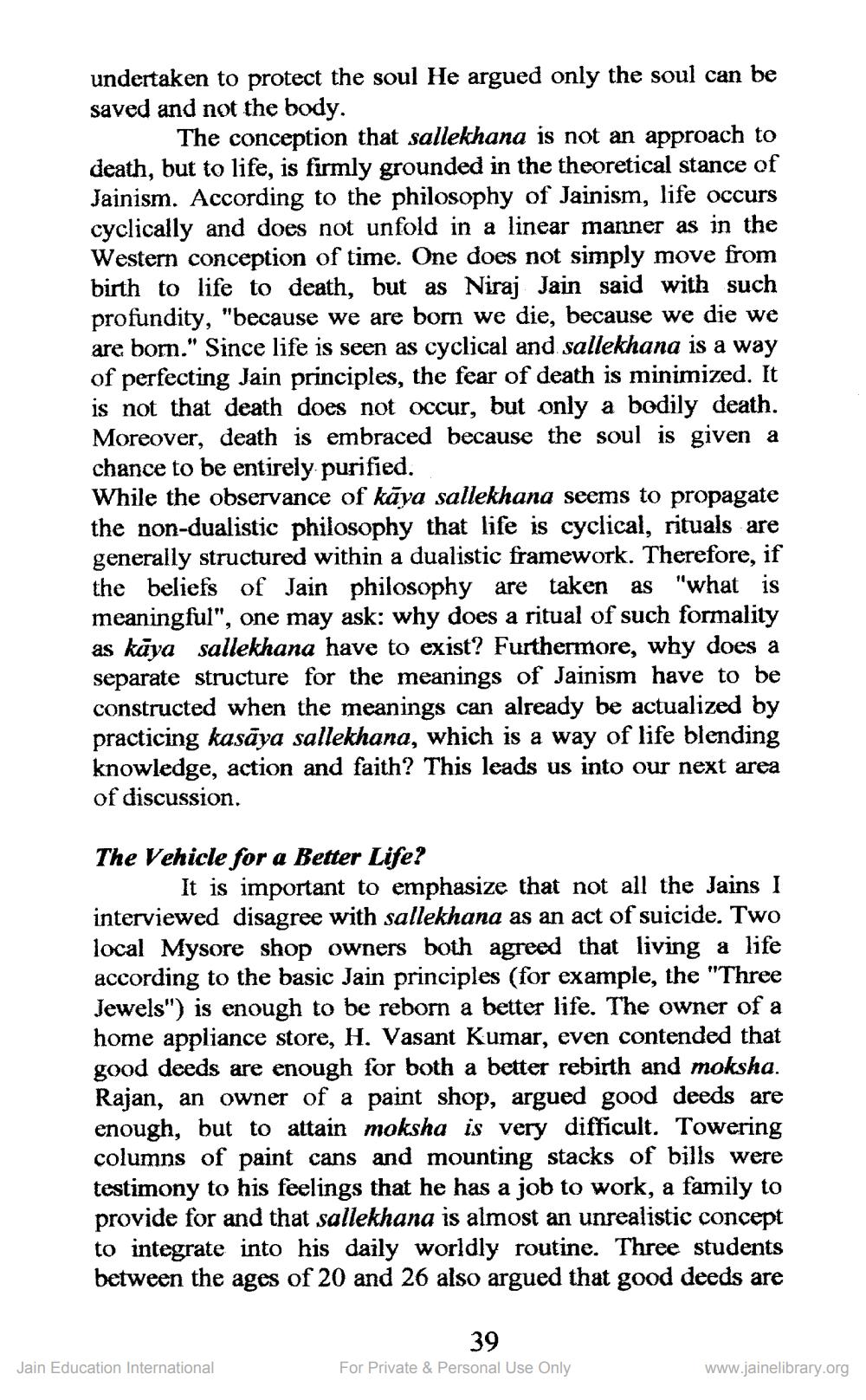________________
undertaken to protect the soul He argued only the soul can be saved and not the body.
The conception that sallekhana is not an approach to death, but to life, is firmly grounded in the theoretical stance of Jainism. According to the philosophy of Jainism, life occurs cyclically and does not unfold in a linear manner as in the Western conception of time. One does not simply move from birth to life to death, but as Niraj Jain said with such profundity, "because we are born we die, because we die we are born." Since life is seen as cyclical and sallekhana is a way of perfecting Jain principles, the fear of death is minimized. It is not that death does not occur, but only a bodily death. Moreover, death is embraced because the soul is given a chance to be entirely purified. While the observance of kāya sallekhana seems to propagate the non-dualistic philosophy that life is cyclical, rituals are generally structured within a dualistic framework. Therefore, if the beliefs of Jain philosophy are taken as "what is meaningful", one may ask: why does a ritual of such formality as kāya sallekhana have to exist? Furthermore, why does a separate structure for the meanings of Jainism have to be constructed when the meanings can already be actualized by practicing kasāya sallekhana, which is a way of life blending knowledge, action and faith? This leads us into our next area of discussion.
The Vehicle for a Better Life?
It is important to emphasize that not all the Jains I interviewed disagree with sallekhana as an act of suicide. Two local Mysore shop owners both agreed that living a life according to the basic Jain principles (for example, the "Three Jewels") is enough to be reborn a better life. The owner of a home appliance store, H. Vasant Kumar, even contended that good deeds are enough for both a better rebirth and moksha. Rajan, an owner of a paint shop, argued good deeds are enough, but to attain moksha is very difficult. Towering columns of paint cans and mounting stacks of bills were testimony to his feelings that he has a job to work, a family to provide for and that sallekhana is almost an unrealistic concept to integrate into his daily worldly routine. Three students between the ages of 20 and 26 also argued that good deeds are
39
Jain Education International
For Private & Personal Use Only
www.jainelibrary.org




